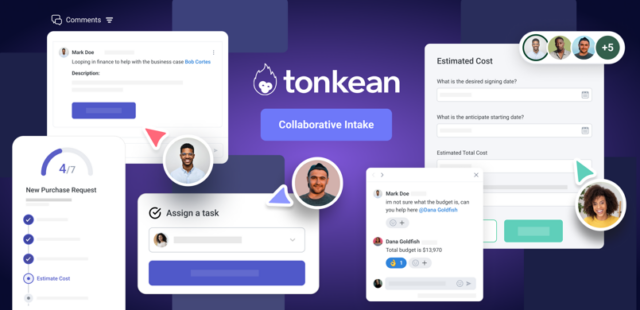Supplier data is the lifeblood of procurement and leaders rely on the strategic insights they get from data analysis to make decisions that reduce risk, boost cost savings and drive performance.
Even so, if the data is faulty, the insights will also be faulty, and a surprising 81% of companies say they are not completely confident in their supplier data. There are a variety of reasons for this:
- Suppliers may not always keep their data fully updated in self-service portals.
- Information isn’t enriched with independently verified data to the level procurement teams need, to include diversity status, proof of compliance, data protection policies and more.
- Researching, assessing and auditing suppliers can be tedious and time-consuming. This means organizations make decisions on incomplete or unreliable data or skip the process altogether.
These challenges have long plagued the procurement function. The issue has come to the forefront of procurement discussions over the past 18 months for many reasons, but most notably because organizations have had to make rapid decisions in response to the COVID-19 pandemic, have increased concerns about business integrity, and face calls from government and civil society for greater diversity and equality of opportunity.
Supplier financial health also remains a top concern. According to riskmethods’ new report, the biggest supplier risks aren’t directly related to COVID. In fact, several key indicators of supplier financial instability increased over the last half of 2020, including ownership structure, field issues such as product safety risks and force majeure warnings. Reliable supplier data is instrumental in meeting these challenges and building supply chain resiliency, agility and diversity.
WATCH NOW: Why reliable supplier data matters
Here are three ways reliable supplier data supercharges procurement:
Drives agility with deeper visibility.
One of the most important lessons we’ve learned from COVID is the criticality of supplier diversification. When production slowdowns, closed borders and fluctuations in customer demand caused global supply shortages, organizations had to adapt quickly and find alternatives. Outdated or incorrect supplier data prevents procurement from confidently deciding on the fly which supplier is the next best to tap.
Total visibility and a deep understanding of the supplier base – capabilities, current orders, past performance, financial risk indicators, whether they’re third-party risk certified, have been audited for cybersecurity vulnerabilities and more – are critical for being able to respond and bounce back from unexpected supplier events. Without this 360-degree view, how do you know if your backup supplier can deliver? What if they can deliver, but are out of compliance or close to bankruptcy, which opens you up to new risk?
Disruptions are inevitable. Reliable data puts procurement in a position to effectively navigate change, reduce risk and take advantage of new opportunities.
Boosts supplier diversity with detailed insights.
Increasing spend with diverse suppliers is the right thing to do because it contributes to social and economic value by helping traditionally underrepresented groups that typically encounter barriers to growth. Diversity is also good for business. According to a study by The Hackett Group, nearly all diverse suppliers meet or exceed buyers’ expectations. Companies that also allocate 20% or more of their spend to diverse suppliers attribute 10-15% of their annual sales to supplier diversity programs. A diverse supply base supports marginalized groups and advances innovation, opens more channels for goods and services, drives prices down and ultimately contributes to bottom line success.
Poor data quality is often a roadblock to reaping these benefits. Organizations don’t always have clear insight into supplier diversity status and which companies are considered historically underutilized vendors — minority, women, veteran, LGBT-owned or Small Business Administration-defined small business vendors. This makes it incredibly difficult to understand the inclusivity of the supplier network and where to boost representation and spend. Reliable supplier data equips organizations to confidently identify and fill gaps and invest in the suppliers that directly support company values and initiatives, whether that’s diversity and inclusion, corporate social responsibility, sustainability or another important cause.
Strengthens supplier relationships with one source of truth.
If data is the lifeblood of the function, supplier relationships are the heart. Strong, collaborative partnerships drive product quality, risk reduction, competitive advantage, growth and more. Cultivating that type of relationship with strategic suppliers requires intentionally managed insights.
Reliable and centralized data helps procurement get an intimate and complete understanding of suppliers – procurement history, supply categories, financial stability, purchasing and contract records and any other signs of the supplier’s relationship to the organization. This insight enables teams to segment out business critical partners, identify any risky partnerships and move forward mutually beneficial opportunities that establish trust and unlock new value. The better you know, communicate and work with your suppliers, the more likely these partners are to help you address your own needs.
The bottom line
Not having reliable data to guide procurement decisions is like driving to an unfamiliar destination without a map or GPS. You might eventually get there, but you’ll likely have taken a wrong turn or two, and spent more time and gas money than needed, in the process. In fact, Gartner research found that poor data quality can cost businesses, anywhere between $9.7 and $14.2 million a year.
With access to stronger and more reliable supplier data, procurement organizations can broaden their supplier network in a meaningful way that supercharges strategy, maximizes effectiveness and speeds the path to achieving critical objectives.

About the author
Jim Bureau is CEO of JAGGAER, which celebrated 25 years in business last year. Jim is responsible for the company’s overall vision to transcend customer experience by providing intuitive and intelligent spend management solutions that allow clients to transform their supply chain.











